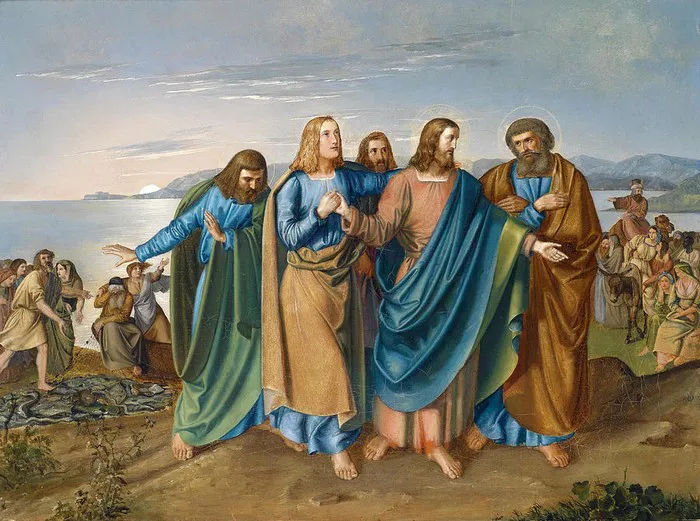The parables of Jesus in the New Testament are profound teachings that continue to resonate with believers and scholars alike. Among these parables, the story of the Rich Fool stands out as a poignant lesson on the perils of greed and materialism. In this essay, we delve into the context, symbolism, and significance of why Jesus told the Parable of the Rich Fool, exploring its timeless message and relevance for contemporary society.
Contextual Background:
To comprehend the significance of the Parable of the Rich Fool, it is essential to understand the socio-economic and religious context in which Jesus lived and preached. First-century Palestine was characterized by stark economic disparities, with a minority of wealthy elites dominating the socio-political landscape while the majority of the population struggled with poverty and oppression.
In this backdrop, Jesus emerged as a radical teacher, challenging the prevailing norms and values of society. His teachings often confronted the greed, injustice, and hypocrisy prevalent among the ruling class and religious authorities. The Parable of the Rich Fool, found in the Gospel of Luke (12:13-21), is a poignant critique of materialism and the pursuit of wealth at the expense of spiritual values.
Interpreting the Parable:
The parable begins with a man described as “rich” who experiences a bountiful harvest. Instead of sharing his surplus wealth or using it for charitable purposes, he decides to build larger barns to hoard his abundance. He indulges in self-congratulation, envisioning a life of leisure and ease. However, his plans are disrupted by an unexpected turn of events—his sudden death.
The rich man’s fate serves as a sobering reminder of the transience of earthly riches and the uncertainty of life itself. Despite his meticulous planning and accumulation of wealth, he ultimately stands condemned for his spiritual poverty. Jesus concludes the parable with the warning, “So is the one who lays up treasure for himself and is not rich toward God” (Luke 12:21, ESV).
Symbolism and Themes:
The Parable of the Rich Fool is rich in symbolism and allegory, conveying profound spiritual truths through its narrative structure. The rich man symbolizes those who prioritize material wealth and worldly success above all else, neglecting their spiritual well-being and moral obligations. His obsession with storing up treasures on earth reflects the pervasive greed and consumerism that characterize contemporary society.
The image of the abundant harvest serves as a metaphor for God’s blessings and the opportunities afforded to individuals. However, the rich man’s response to his abundance—self-indulgence and hoarding—illustrates the distortion of God’s gifts when used for selfish ends. Instead of being grateful stewards of God’s provision, the rich man succumbs to the temptation of greed, becoming enslaved by his possessions.
Furthermore, the suddenness of the rich man’s death underscores the ephemeral nature of worldly pursuits and the illusion of security derived from material wealth. Despite his meticulous planning and accumulation of possessions, he is unable to control the timing of his demise or take his riches with him beyond the grave. This existential reality serves as a stark reminder of the vanity of human ambitions and the need for a deeper, more meaningful existence.
The theme of spiritual impoverishment versus true riches lies at the heart of the parable. While the rich man may have been materially affluent, he is ultimately impoverished in the eyes of God due to his neglect of spiritual values such as generosity, compassion, and humility. Jesus contrasts this with the concept of being “rich toward God,” which entails a life characterized by faith, righteousness, and devotion to divine purposes.
Relevance and Application:
Despite being set in a specific historical context, the Parable of the Rich Fool continues to hold relevance and relevance for contemporary audiences. In an age marked by rampant consumerism, income inequality, and environmental degradation, Jesus’ warning against greed and materialism strikes a chord with believers and non-believers alike.
The parable challenges us to examine our priorities and values in light of eternity. Are we pursuing wealth and success at the expense of our spiritual well-being and moral integrity? Are we hoarding our resources or using them to bless others and advance God’s kingdom on earth? These are questions that demand introspection and self-examination in a culture that often equates worth with wealth and possessions.
Moreover, the Parable of the Rich Fool compels us to reconsider our relationship with material wealth and the proper stewardship of God’s resources. Rather than being consumed by the pursuit of wealth and status, we are called to adopt a posture of gratitude, generosity, and humility. True riches are not measured by the size of our bank accounts or the possessions we accumulate but by the depth of our relationship with God and our willingness to serve others.
Conclusion
The Parable of the Rich Fool stands as a timeless admonition against the dangers of greed, materialism, and spiritual complacency. Through its vivid imagery and moral clarity, Jesus challenges his listeners to reevaluate their priorities and live in alignment with God’s kingdom values. As we navigate the complexities of modern life, may we heed the wisdom of Jesus’ teachings and strive to be rich toward God, storing up treasures in heaven rather than on earth.
FAQs:
What does the parable of the rich fool mean for kids?
The parable teaches children about the importance of being wise with their possessions and not placing too much value on material wealth. It emphasizes the idea that true riches come from sharing and being generous rather than hoarding wealth selfishly.
What does the fool mean in the Bible?
In the Bible, a fool is often depicted as someone who lacks wisdom, understanding, or reverence for God. They act foolishly, make poor decisions, and often reject sound advice or guidance.
What does the Bible say about a fool and his money?
The Bible warns that a fool and his money are soon parted, suggesting that those who lack wisdom in managing their finances will quickly lose their wealth through foolish spending, reckless investments, or other irresponsible behaviors.

